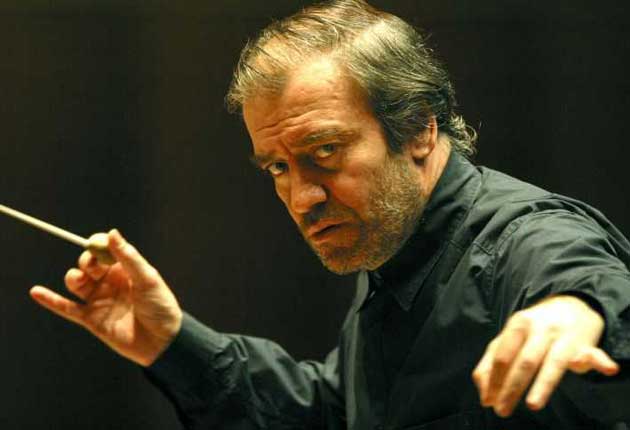Prom 52: LSO/Gergiev, Royal Albert Hall, London

Your support helps us to tell the story
From reproductive rights to climate change to Big Tech, The Independent is on the ground when the story is developing. Whether it's investigating the financials of Elon Musk's pro-Trump PAC or producing our latest documentary, 'The A Word', which shines a light on the American women fighting for reproductive rights, we know how important it is to parse out the facts from the messaging.
At such a critical moment in US history, we need reporters on the ground. Your donation allows us to keep sending journalists to speak to both sides of the story.
The Independent is trusted by Americans across the entire political spectrum. And unlike many other quality news outlets, we choose not to lock Americans out of our reporting and analysis with paywalls. We believe quality journalism should be available to everyone, paid for by those who can afford it.
Your support makes all the difference.How do you musically represent the explosion of an atom bomb? Last year John Adams showed us in his new opera Dr Atomic: a succession of shattering brass triads in G sharp minor, with an extra hyper-romantic chord thrown in. Alfred Schnittke's way, half a century ago, was to bombard his audience with everything in his orchestral armoury – string and trombone glissandi, cluster-chords, roars on percussion, and tremolandi all round. But the Nagasaki oratorio which Valery Gergiev and the London Symphony Orchestra brought to the Proms didn't give us Schnittke the mature and playful "polystylist": this was Schnittke the student, and it showed.
He wrote this work as his graduation piece at Moscow Conservatory, and added in poems on Nagasaki by Japanese poets, plus a longer poem by a Russian: it was castigated as "Expressionism" and as "forgetting the principles of realism in music", and it got only one further performance in the rest of his life. He later conceded that it was "naïve but sincere": no question of that in the LSO's performance, but a successful oratorio requires more than sincerity. Like any young composer searching for his voice, we hear Schnittke trying on several for size: first that of Brahms, then Stravinsky, before settling, alas, for a huge wind contingent and Carl Orff choral effects. And, as in music by Orff, the lumbering vocal lines criss-crossed in the air like winds on a bare mountain. The most moving of the poems was sung by the young Russian mezzo Elena Zhidkova – far more beautifully than this bombastic piece deserved. Why did Gergiev waste so much precious time, money, and talent on its revival?
He redeemed himself in the second half of the programme with a magnificent performance of Shostakovich's Eighth Symphony. This work, too, had fallen foul of the Soviet authorities, but the world has long acknowledged it as a masterpiece. Gergiev gave it a poised monumentality from the start, letting the bleakness of the initial theme work its labyrinthine way towards gallows humour in the second movement, and demonic power in the third; from the famous cor anglais solo to the three cymbal-crashing chords which are the leitmotiv, everything was beautifully sculpted. This was an immensely subtle rendering, leading to a final affirmation of passionate tenderness.
Join our commenting forum
Join thought-provoking conversations, follow other Independent readers and see their replies
Comments